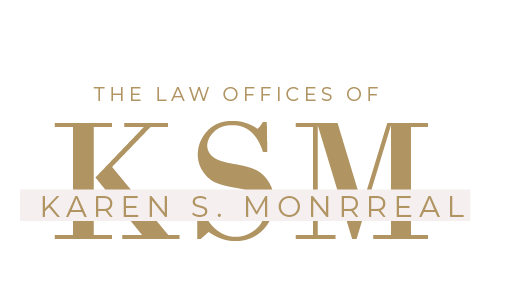Top 10 Questions to Ask When Considering Immigration to the U.S.
Immigrating to the United States is a life-changing decision that involves a complex legal process and significant emotional investment. Whether you’re pursuing a visa, permanent residency, or citizenship, understanding the key aspects of U.S. immigration law is critical. To help you make an informed decision, here are the top 10 questions you should ask when considering immigration to the U.S.
1. What Are the Different Types of U.S. Visas, and Which One Is Right for Me?
The U.S. offers various types of visas, each serving a specific purpose. Understanding the visa that best fits your situation is crucial before applying. The main categories of visas include:
- Non-Immigrant Visas: These are for individuals who wish to temporarily visit the U.S. for work, study, tourism, or other specific purposes. Common examples include the B-1/B-2 tourist visas, F-1 student visas, and H-1B work visas.
- Immigrant Visas: These are for those intending to live permanently in the U.S. This includes family-sponsored visas (like the IR-1 visa for spouses of U.S. citizens) and employment-based visas (such as EB-1, EB-2, and EB-3 for skilled workers and professionals).
Determining which visa type is right for you depends on factors like the purpose of your stay, your qualifications, and whether you have family or employment opportunities in the U.S. It’s advisable to consult an immigration attorney to assess your situation and identify the most suitable visa option.
2. Am I Eligible to Apply for a Green Card (Permanent Residency)?
A Green Card grants you the right to live and work permanently in the U.S., making it one of the most sought-after immigration statuses. There are several paths to obtaining a Green Card, including:
- Family Sponsorship: Immediate relatives of U.S. citizens (spouses, parents, and unmarried children under 21) are eligible for Green Cards.
- Employment: Certain employment-based visas, such as EB-1 for priority workers, lead to Green Cards.
- Asylum and Refugee Status: Individuals fleeing persecution may be eligible for asylum or refugee status, which can lead to permanent residency.
- Diversity Visa Lottery: The U.S. offers a limited number of Green Cards annually through the Diversity Immigrant Visa Program, also known as the Green Card lottery.
Before applying, it’s important to determine if you meet the eligibility criteria for any of these categories.
3. What Are the Costs Involved in the Immigration Process?
Immigration to the U.S. can be costly. Fees include application processing, legal representation, translation of documents, and travel expenses. For example, the current filing fee for the Green Card application (Form I-485) is over $1,000, excluding other related costs like medical exams and biometrics.
Hiring an immigration lawyer is also an additional expense, but it is often worth it to avoid costly mistakes that can delay or derail your application. It’s essential to plan and budget accordingly.
4. What Are the Processing Times for U.S. Immigration Applications?
Processing times for immigration applications vary greatly depending on the type of visa or immigration benefit you’re seeking, as well as the U.S. Citizenship and Immigration Services (USCIS) workload at the time of your application.
For example:
- Family-Based Green Card: Processing can take anywhere from 10 months to several years, depending on your family relationship and the country you’re applying from.
- Employment-Based Green Card: This process typically takes 1-3 years, depending on the visa category and your country of origin.
- Non-Immigrant Visas: These visas, like the H-1B, have set application windows, and processing can take several months.
Understanding processing times in advance can help you manage expectations and plan your immigration timeline more effectively.
5. What Are the English Language Requirements for U.S. Immigration?
While not all visa types require English proficiency, certain immigration processes, particularly naturalization (becoming a U.S. citizen), require you to demonstrate basic knowledge of English. This includes the ability to read, write, and speak the language.
For employment-based visas, having strong English skills can significantly improve your chances of securing a job in the U.S. Many employers prefer candidates who are proficient in English, especially in professional settings.
Additionally, proficiency in English can make it easier to integrate into American society, access better job opportunities, and complete legal processes.
6. What Documents Will I Need to Provide When Applying for U.S. Immigration?
The documents required for U.S. immigration depend on the visa or immigration benefit you’re applying for, but generally include:
- Proof of Identity: A valid passport and birth certificate.
- Proof of Relationship: For family-sponsored visas, you’ll need to provide evidence of your relationship with the U.S. sponsor (e.g., marriage certificate for spouses).
- Educational and Employment Records: For employment-based visas, you’ll need to show proof of your qualifications, such as diplomas, certifications, and letters from past employers.
- Financial Records: To prove that you or your sponsor can support you financially while in the U.S., you may need to provide bank statements, tax returns, or affidavits of support.
Ensuring that all documents are accurate, up-to-date, and translated into English (if necessary) is critical to avoid delays or denials in your application.
7. How Can I Avoid Common Mistakes in the Immigration Process?
The U.S. immigration process is highly regulated, and even small mistakes can lead to delays, rejections, or even deportation. Here are some common mistakes to avoid:
- Submitting Incomplete or Incorrect Forms: Double-check that all forms are complete and accurate before submitting them.
- Missing Deadlines: Pay close attention to filing deadlines and respond promptly to any requests for additional information from USCIS.
- Failing to Provide Adequate Documentation: Make sure you submit all the required documents with your application.
- Entering the U.S. on the Wrong Visa: Ensure that you apply for the correct visa for your intended activities in the U.S.
Working with an experienced immigration lawyer can help you navigate these pitfalls and avoid costly mistakes.
8. Can I Work or Study While My Immigration Application Is Pending?
The ability to work or study in the U.S. while your immigration application is pending depends on the type of visa or status you’re applying for. Some options include:
- Work Visas: If you have applied for a work-based visa (such as an H-1B visa), you are eligible to work in the U.S. once your visa is approved.
- Student Visas (F-1): If you’re on a student visa, you can study full-time and may be eligible to work on-campus and, in some cases, off-campus through Optional Practical Training (OPT) or Curricular Practical Training (CPT).
If you’re applying for a Green Card and already in the U.S., you may be eligible for a work permit (Employment Authorization Document or EAD) while your application is being processed.
9. What Are the Rights and Responsibilities of U.S. Green Card Holders?
Green Card holders (permanent residents) enjoy many rights in the U.S., but they also have responsibilities. Understanding both is crucial to maintaining your status. Some key rights and responsibilities include:
- Rights: Green Card holders can live and work in the U.S. permanently, travel in and out of the country, and apply for U.S. citizenship after five years.
- Responsibilities: Green Card holders must obey all U.S. laws, file U.S. tax returns, and maintain continuous residency. Failure to fulfill these responsibilities can result in the loss of Green Card status or deportation.
10. What Happens If My U.S. Immigration Application Is Denied?
If your immigration application is denied, you have options to challenge the decision. The most common remedies include:
- Appeals: You can file an appeal to have your case reviewed by a higher authority, such as the Administrative Appeals Office (AAO) or the Board of Immigration Appeals (BIA).
- Motions to Reopen or Reconsider: If new evidence has come to light or if there was an error in the application process, you can file a motion to reopen or reconsider your case.
- Reapplication: Depending on the reason for the denial, you may be able to correct the issues and reapply.
Working with an immigration lawyer can significantly improve your chances of success in any of these scenarios.
Immigrating to the U.S. is a complex process that requires careful planning, documentation, and legal expertise. By asking the right questions and seeking professional guidance, you can navigate the immigration system more effectively and increase your chances of success. At the Law Offices of Karen Monrreal, we specialize in helping clients through every step of the U.S. immigration process. Contact us today to schedule a consultation and let us guide you through this important journey.

